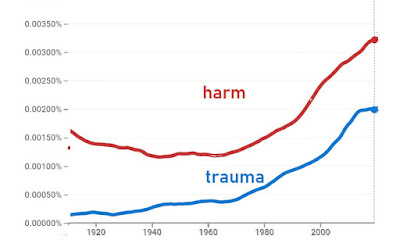April 25, 2021
Posted by Jay Livingston
I’ve just watched “The Trial of the Chicago Seven.” Sacha Baron Cohen’s Abbie Hoffman brought back memories of my own brief contact with Abbie. Maybe it’s getting into tl;dr territory, and what follows is certainly less sociology, than it is, in Chris Uggen’s phrase, self-indulgery.
I met Abbie Hoffman before he became Abbie Hoffman, the Abbie Hoffman everyone knows, the Abbie Hoffman of “The Trial of the Chicago Seven,” It was two years before the Chicago convention, the summer of 1966. I was 22 and about to enter graduate school. Abbie was 29.
I had just finished college and was working in the Democratic primary campaign of an anti-war candidate for U.S. senate in Massachusetts. His name was Thomas Boylston Adams, and he came by it honestly. I am not sure about the Boylston strand, but the Adams part went directly back to John and John Quincy. More important, he was the only candidate who opposed the war in Vietnam.
His opponents were Endicott Peabody, governor of the state, and John Collins. mayor of Boston. We knew we had no chance to win against establishment Democrats. We were in it to get out the anti-war message. But because the vehicle for that was an election, we had to do what you do in electoral politics.
Much of my work, as I recall, consisted of “canvassing”—handing out literature and trying to get people to sign petitions to get Adams on the ballot. We would canvas in Boston one day, Brockton the next, Fall River the next. One hot day, the campaign manager sent a group from the Boston office out to Worcester to canvas there. He told us that we’d get more information from the campaign co-ordinator for that part of the state—Abbie Hoffman.
Abbie met us, assigned us to different parts of the city, and told us a little bit about the neighborhoods we would be canvassing. Then we were on our own, and I didn’t see him again that day.
At the time, his biography was much like that of many of the other people in the campaign who had worked for liberal and left-wing causes. Yippies did not yet exist. It seems odd now to think of Abbie Hoffman as regional manager, directing conventional political work like canvassing for a candidate who looked, sounded, and acted every bit the Boston Brahmin.
I didn’t see Abbie again until late August, towards the end of the campaign, when the candidate invited everyone for a picnic at his summer home on the South Shore near Quincy. It was a modest, wooden house on several acres of land. Most of the Boston-area people went. A few of the workers from the regional offices also came in for the event. All told, we numbered no more than two dozen.
At some point in the afternoon, several of us went to play softball, and I found myself walking next to Abbie. The field for the game lay on the other side of a slight ridge. When we got to the top and looked out at the large open area below us, Abbie stretched out his arm and made a sweeping gesture. “Comes the revolution, my son,” he said in a fake Russian accent, “all of this will be yours.”
Except for the picnic, most of us rarely had a chance to speak with the candidate himself—an arrangement that was probably for the best. About the only thing most of us had in common with him was a general opposition to the Vietnam war. But while Adams’s views on Vietnam made him the most liberal person running for office in Massachusetts, he was several steps to the right of just about everybody in his own campaign, including of course, Abbie. They were an assortment of 1960s activists. Some were students from SDS. Others had been recruited from past electoral campaigns for other non-mainstream candidates. Some came out of the civil rights movement, having only a few years earlier worked on voter registration in the South with SNCC and CORE. Nobody on the staff had illusions about winning a Senate seat. Instead, people spoke of the campaign as “educational” (i.e., to educate the public about the war). Many of them, like Abbie, also saw it as a way to build a foundation for future political organizing, whether for local or national issues. That was their job. They were political organizers.
One other scene has stayed in my mind from that warm, August day. I do not remember how we all got back to Boston or how it was that Abbie and I were the only ones from the group taking the MTA back to Cambridge, but that is where the memory begins—near sunset at the end of a long day, me standing in an MTA car, talking with Abbie Hoffman.
We were both tired. The picnic had, in effect, marked the end of the campaign. The September primary was only a week or two away. The candidate, we all knew, would get only a handful of votes, and the student workers like me would go back to school. But I wondered about the “older” people.
“What do you think you’re going to do now?” I asked.
“I don’t know,” Abbie said, “I really don’t.” He talked about other political issues that needed people, but it all seemed vague, as though he were tired of it all.
Then he said, “A lot of people I know are getting jobs in the poverty program. It’s a steady job, and you can do pretty well.” Remember, this was the hopeful era of the Great Society, of OEO programs that needed workers and administrators. “I guess I can always get something there too.”
He paused, and for an instant the twinkle returned to his eyes. He shook his head slightly. “But I don’t think I could do that.”




